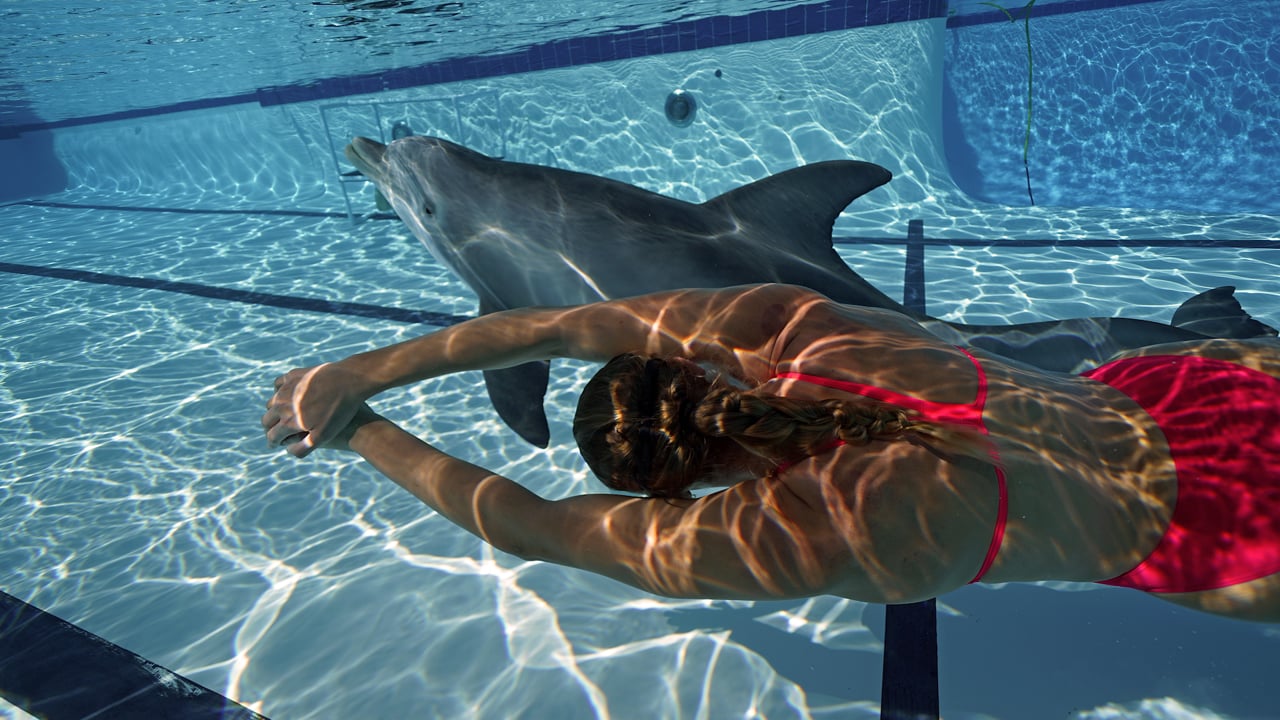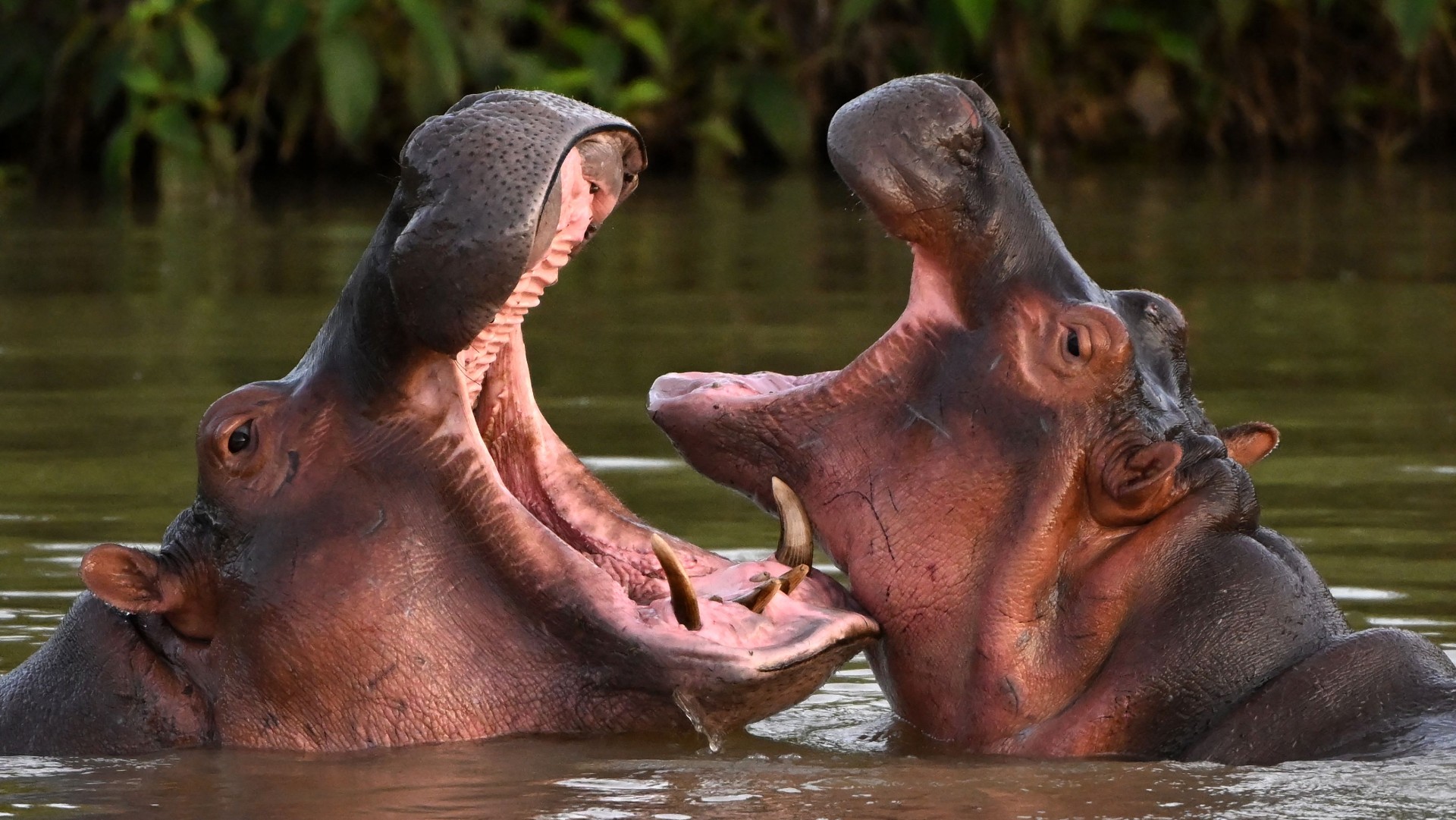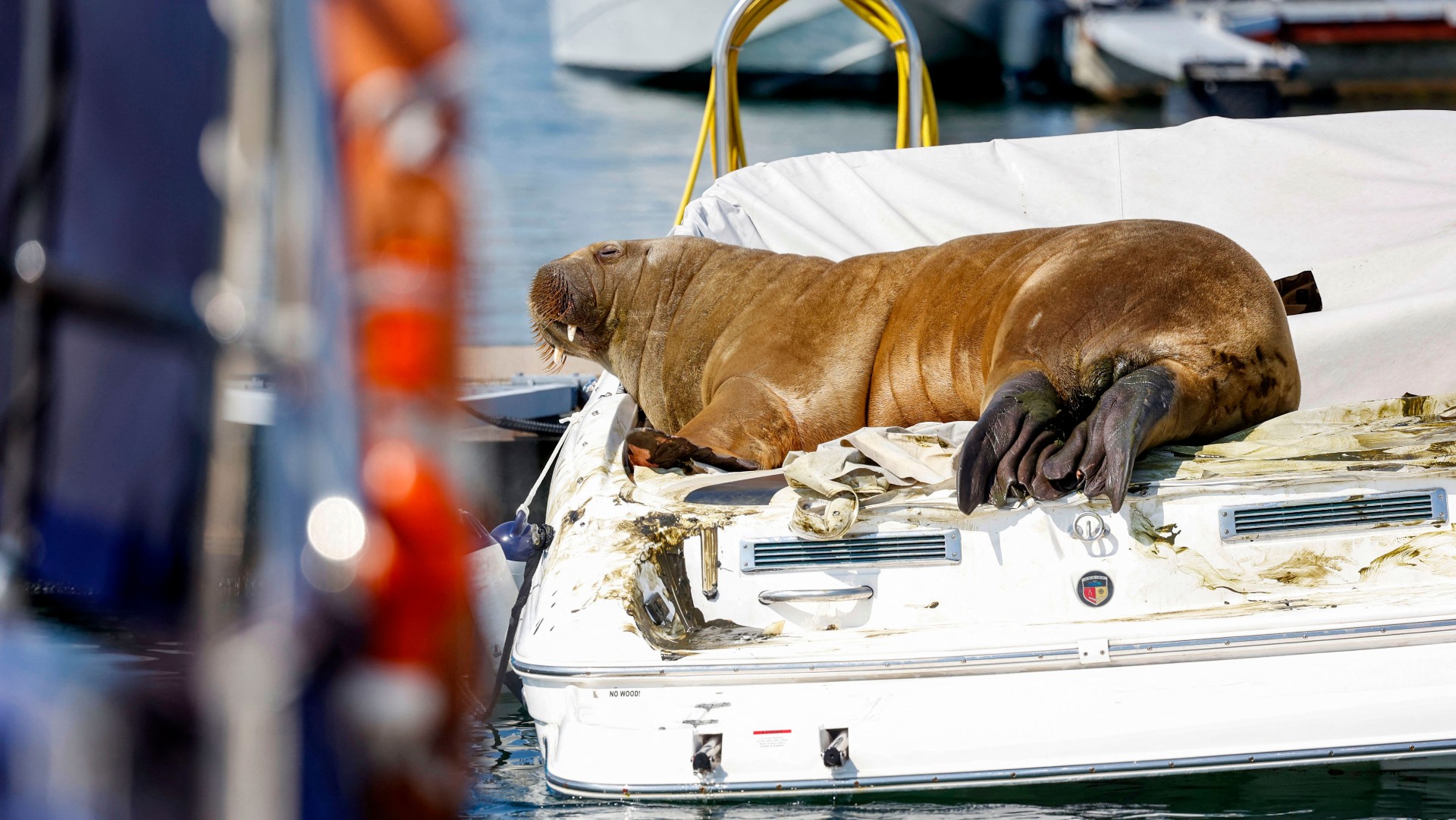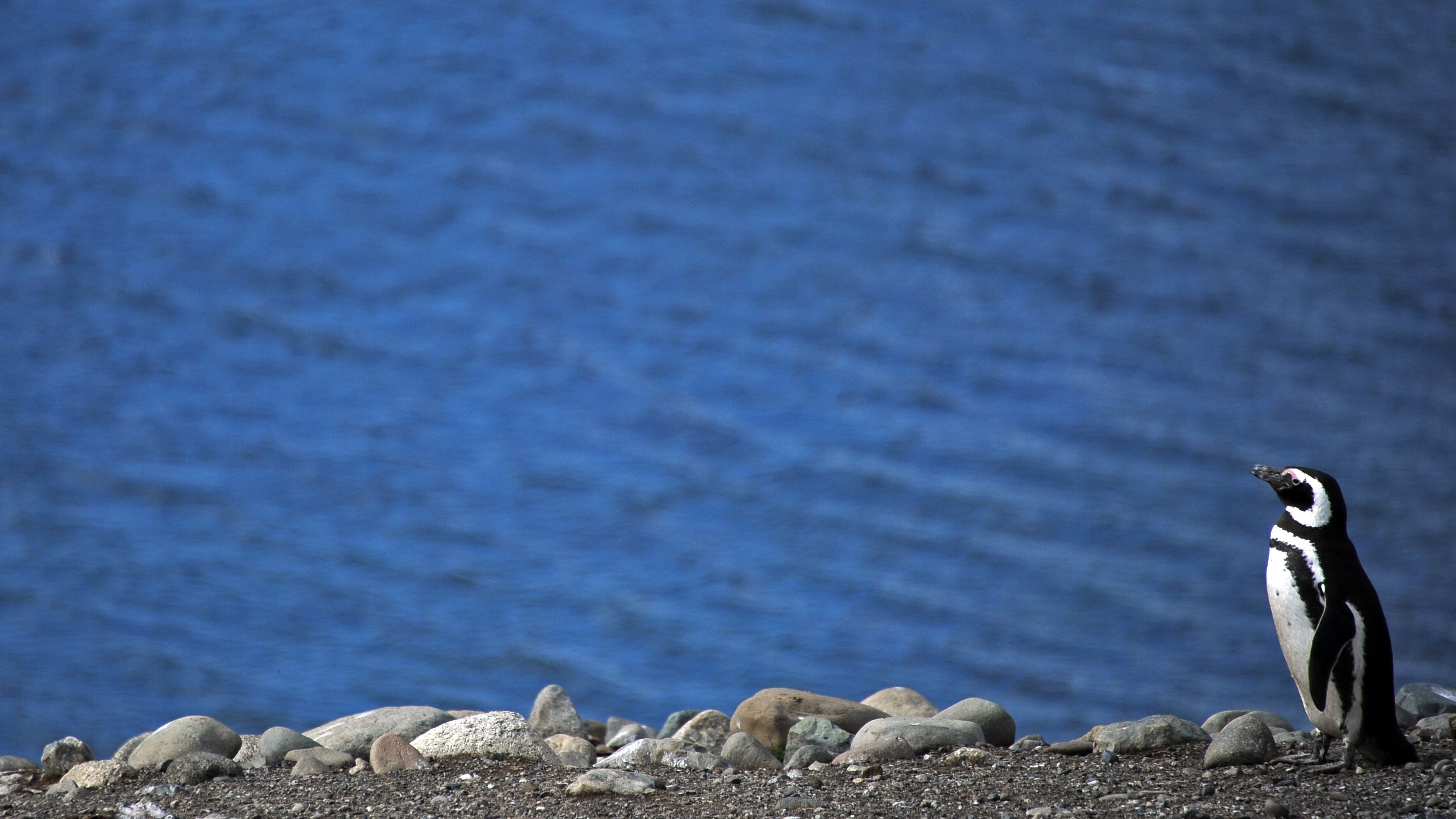£20m robotic dolphin could replace captive animals
Chinese ban on exotic creatures could see robot revolution

A free daily email with the biggest news stories of the day – and the best features from TheWeek.com
You are now subscribed
Your newsletter sign-up was successful
Robotic dolphins could replace live ones in Chinese aquariums after extensive bans on the wildlife trade in the country.
San Francisco tech company Edge Innovations has created an animatronic dolphin that can last over a decade in salt water without any maintenance.
“Judging from footage of it in a pool, you’d be hard pressed to tell the difference between this and a real one,” says Metro.
The Week
Escape your echo chamber. Get the facts behind the news, plus analysis from multiple perspectives.

Sign up for The Week's Free Newsletters
From our morning news briefing to a weekly Good News Newsletter, get the best of The Week delivered directly to your inbox.
From our morning news briefing to a weekly Good News Newsletter, get the best of The Week delivered directly to your inbox.
And a test audience had been unable to guess the dolphin was not real, Melanie Langlotz, one of the entrepreneurs behind the project, told The Guardian.
The machine can swim for up to 10 hours on a single charge of its battery, and is operated via remote control.

Not only does the replica look and move like a real dolphin, it feels like one too. It has a realistic skeletal and muscular structure underneath its outer skin, and accurate weight distribution that helps make its swimming motion look like the robot is actually alive, says Gizmodo.
The dolphin is being developed after China introduced strict new rules on the buying and selling of exotic animals in the wake of the coronavirus pandemic. But even after the pandemic, animal rights activists say that robotic dolphins should remain in place of live creatures.
A free daily email with the biggest news stories of the day – and the best features from TheWeek.com
Elisa Allen, UK director for People for the Ethical Treatment of Animals, said in a statement she hoped robotic dolphins “will replace real ones in marine parks worldwide”, adding that “in 2020, cutting-edge technology allows us to experience nature without harming it”.
-
 The environmental cost of GLP-1s
The environmental cost of GLP-1sThe explainer Producing the drugs is a dirty process
-
 Greenland’s capital becomes ground zero for the country’s diplomatic straits
Greenland’s capital becomes ground zero for the country’s diplomatic straitsIN THE SPOTLIGHT A flurry of new consular activity in Nuuk shows how important Greenland has become to Europeans’ anxiety about American imperialism
-
 ‘This is something that happens all too often’
‘This is something that happens all too often’Instant Opinion Opinion, comment and editorials of the day
-
 Turkey divided over 'massacre law' to combat stray dogs
Turkey divided over 'massacre law' to combat stray dogsUnder the Radar Many argue growing dog population is dangerous and dirty; others see them as historic and 'integral' aspect of Turkish culture
-
 Colombia’s growing ‘cocaine hippo’ problem
Colombia’s growing ‘cocaine hippo’ problemfeature Descendants of animals once owned by druglord Pablo Escobar pose serious threat to humans and wildlife
-
 Why Norway euthanised ‘beloved’ walrus Freya
Why Norway euthanised ‘beloved’ walrus FreyaSpeed Read The 600kg animal had become a popular attraction in the Oslo Fjord
-
 Shell’s North Sea oil U-turn: ‘a first victory in a longer war’?
Shell’s North Sea oil U-turn: ‘a first victory in a longer war’?Speed Read Controversy after oil giant pulls out of proposed Cambo project
-
 Fires, floods and storms: America’s ‘permanent emergency’ has begun
Fires, floods and storms: America’s ‘permanent emergency’ has begunSpeed Read This summer of climate horror feels like the ‘first, vertiginous 15 minutes of a disaster movie’, says The New York Times
-
 Hot air and empty rhetoric: is the UK acting too slowly on climate change?
Hot air and empty rhetoric: is the UK acting too slowly on climate change?Speed Read ‘Every day, new evidence accumulates that humanity is on an unsustainable path’
-
 Germany floods: what led to this ‘once-in-a-century’ disaster?
Germany floods: what led to this ‘once-in-a-century’ disaster?Speed Read Nearly 200 people died in Germany and Belgium; hundreds are still unaccounted for
-
 Penguin colony at risk as Somerset-sized iceberg bears down on British overseas territory
Penguin colony at risk as Somerset-sized iceberg bears down on British overseas territorySpeed Read Several species face starvation if the icy giant blocks access to feeding grounds